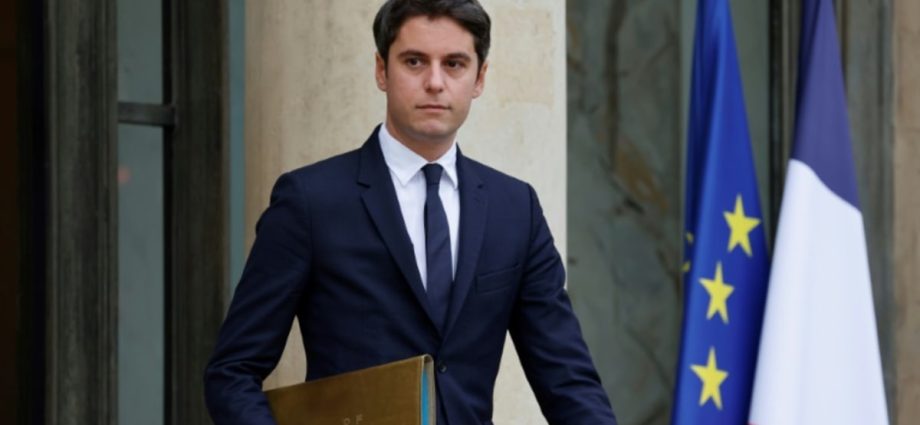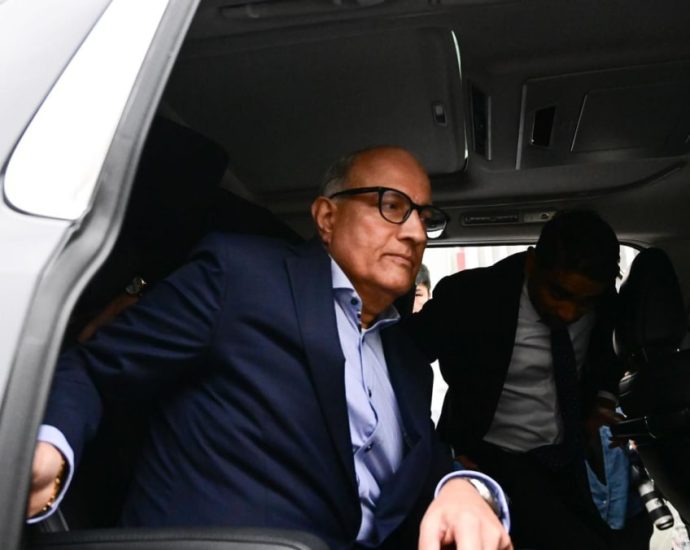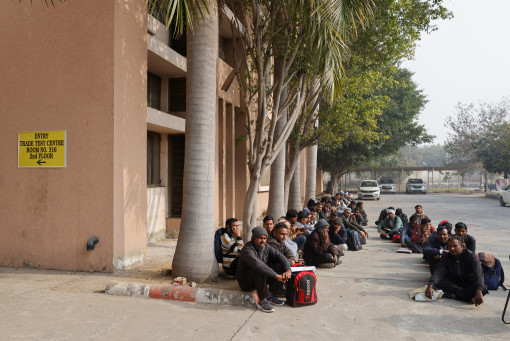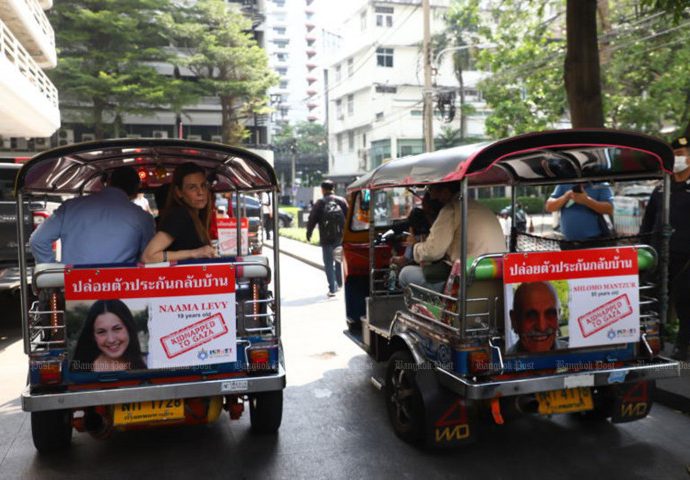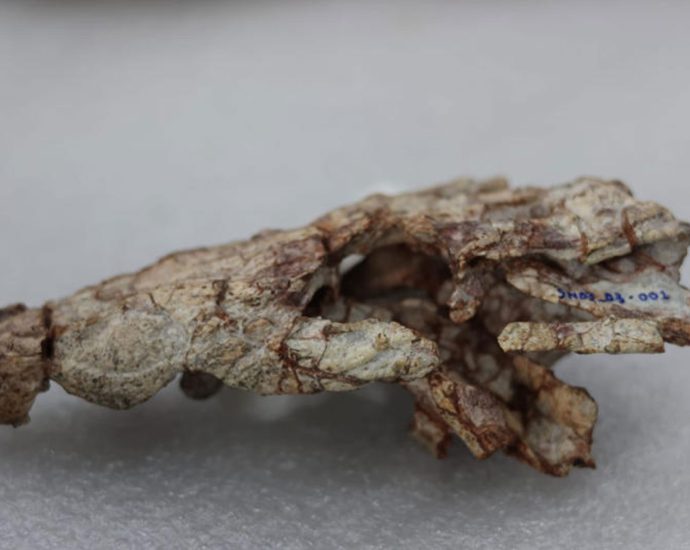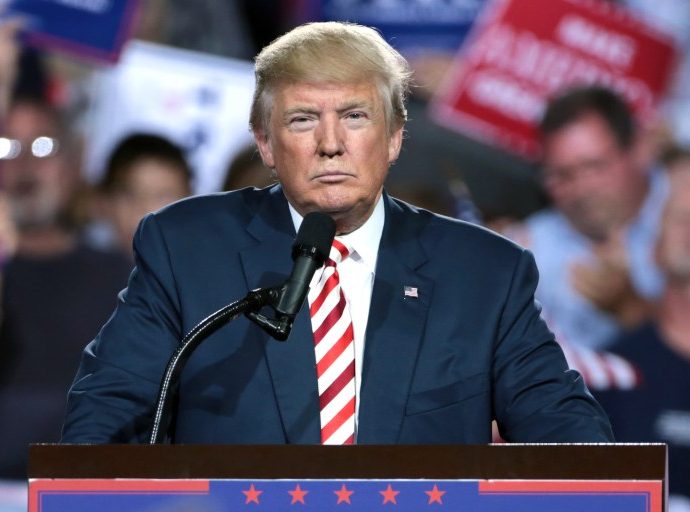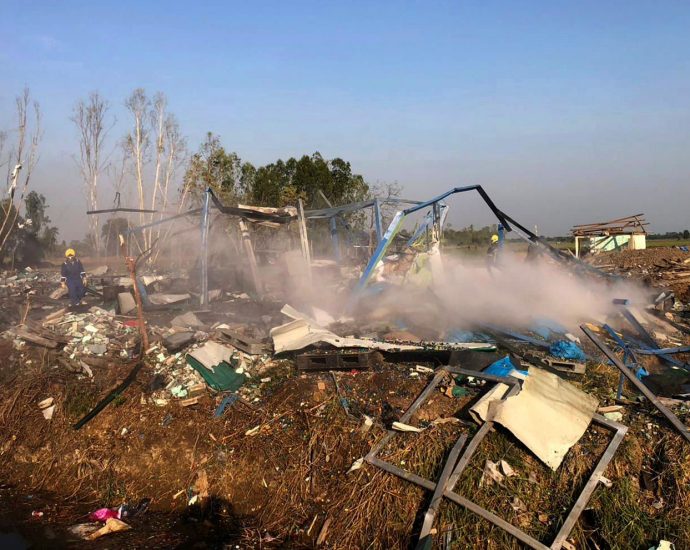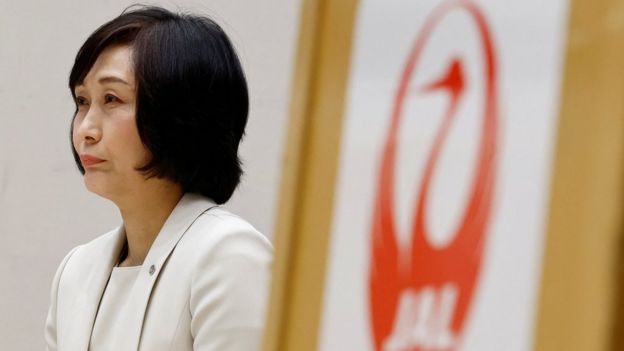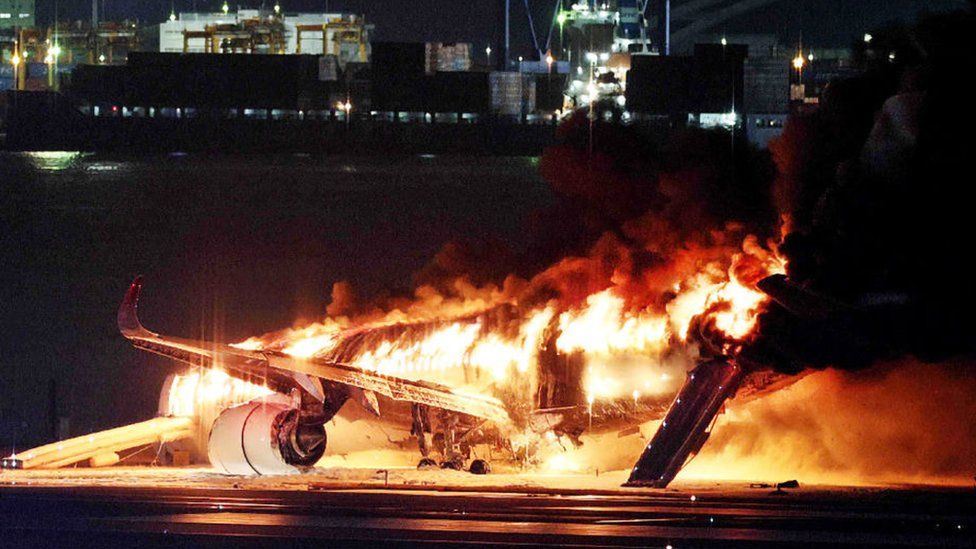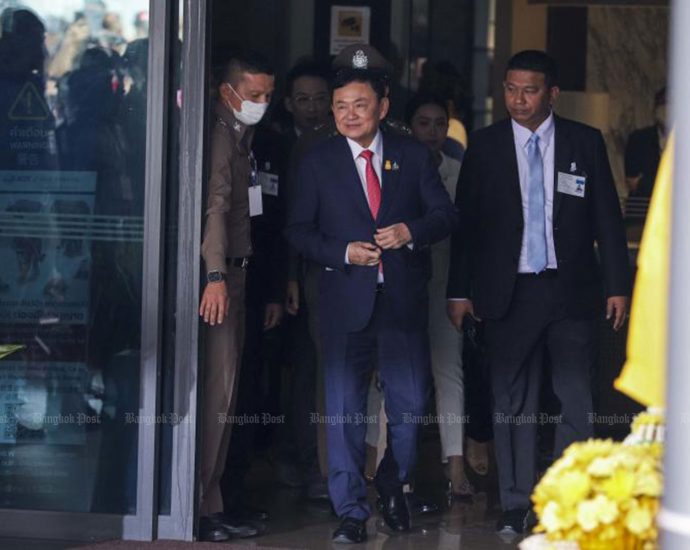PM Lee congratulates new French PM Gabriel Attal
SINGAPORE: Prime Minister Lee Hsien Loong has congratulated newly appointed French Prime Minister Gabriel Attal, saying he is looking forward to working with him to deepen relations between Singapore and France. Mr Attal became the youngest French prime minister ever when he was appointed on Jan 9. He replaced ElisabethContinue Reading
Iswaran charged: A look at some past corruption cases involving high-ranking government officials
SINGAPORE: The charging of former Transport Minister S Iswaran with 27 offences mostly related to bribery and corruption is not the first time such allegations have been levelled at high-ranking government officials here. In a reflection of Singapore’s longstanding zero-tolerance stance towards corruption, at least two other former ministers in Singapore’s historyContinue Reading
Nine children dead after boat capsizes in India
AHMEDABAD, India: At least 10 people, including nine children, drowned when a boat capsized on Thursday (Jan 18) in western India, officials said, with a search on to find more of the missing. The incident happened in Gujarat state as students were travelling to a picnic organised by their school. DozensContinue Reading
Indian workers keen on jobs in Israel
Skilled construction workers among those not deterred by war risks
PUBLISHED : 18 Jan 2024 at 21:18

ROHTAK, India – Thousands of men queued in the northern state of Harayana this week during a recruitment drive to send workers to Israel, where the offensive in Gaza, now in its fourth month, has caused a shortage of labour.
Indian masons, painters, electricians, plumbers and some farmers said they were looking for jobs in Israel, with some willing to risk going into a conflict zone because they could make five times more money in a year than they would at home.
“There is unemployment here and its because of it that people want to leave,” said Lekharam, a mason who was among the workers gathered at a recruitment camp in Rohtak, 66 kilometres from the capital, New Delhi.
“If it’s in our destiny to die, then we can die either here or there. My hope is that we will go and do good work and spend some time and come back.”
Officials at the Israeli embassy in New Delhi and in the Indian foreign ministry did not respond to questions about the recruitment.
India, now the world’s most populous nation with a population of 1.4 billion, has an urban unemployment rate of 6.6%, government data shows, but more than 17% of workers younger than 29 are unemployed and others work as casual labour.
Unemployment and underemployment are a key concern for authorities, despite world-beating economic growth of 7.3%.
This month an Israeli financial newspaper said the country planned to bring in about 70,000 foreign workers from China, India and elsewhere to boost its construction sector, which has come to a standstill since the Oct 7 attack by Hamas militants.
Thailand has long been a major contributor of workers to Israel, especially in the agriculture sector. About 8,000 of the 30,000 Thai workers in the country have returned home since the war began, though some are reportedly considering going back.
India’s National Skills Development Corporation canvassed in recent weeks for workers to live and work in Israel.
Recruiters at the camp refused to comment on the drive.
Vivek Sharma, a 28-year-old mason, said he was aware of the risks in Israel from the conflict but was willing to take the risk if he could earn more.
“Yes, I am aware of the conflict, but I can earn a lot of money in a short time,” said Sharma, who estimates he could end up earning more than a million Indian rupees ($12,000) by working in Israel for a year.
“It could take me at least five years to earn the same amount of money in India.”
Government data shows about 13 million Indian nationals work overseas as labourers, professionals, and experts.
Israel and India signed an agreement last year to allow more than 40,000 Indians to work in the Jewish state in the nursing and construction sectors.
Pro-Palestine group blasts Israel’s tuk-tuk campaign
Government also distances itself from embassy’s high-profile drive calling for release of hostages
PUBLISHED : 18 Jan 2024 at 20:41

A pro-Palestine group has called on parliament to pressure the Israeli embassy into ending a high-profile local campaign calling for the release of hostages taken by Hamas in Gaza, saying it risks undermining Thailand’s neutrality.
The campaign involves 100 tuk-tuks featuring the faces of over 130 people currently held hostage by Hamas and messages demanding their release. The vehicles are being deployed across the capital for about three weeks.
In a petition submitted to Parliament President Wan Muhamad Noor Matha, the Palestine Solidarity Campaign-Thailand (PSCT) questioned why the Ministry of Foreign Affairs allowed the campaign to go ahead in the first place.
Foreign Affairs Minister Parnpree Bahiddha-Nukara said on Tuesday that the Israeli embassy did not discuss the campaign with the ministry.
Speaking from the World Economic Forum in Davos, Mr Parnpree said Thailand disagrees with the campaign as it could have ramifications for the remaining Thai hostages being held by Hamas.
While in Davos, the minister was expected to meet Sheikh Mohammed bin Abdulrahman Al Thani, the prime minister of Qatar, to discuss the release of the hostages. Qatar has been instrumental in bringing many parties together to secure the release of a number of Israeli, Thai and other hostages.
Somchai Wirunphol, the PSCT chairman, said the tuk-tuk campaign by Orna Sagiv, the Israeli ambassador, was an attempt to pressure the Thai government to side with Israel in the conflict, which undermines Thailand’s political neutrality.
He said the campaign contradicted an agreement made during a session of the United Nations General Assembly that a ceasefire and delivery of humanitarian aid for Gaza civilians must take place before negotiations on the hostages can begin.
Isan âdwarf crocodileâ fossil over 130m years old
Confirmation of find after five years of study sparks more interest in Phu Phan mountains
PUBLISHED : 18 Jan 2024 at 20:33

A fossil found in the Phu Phan mountains in Sakon Nakhon province has been confirmed to belong to a 130-million-year-old crocodile species, authorities said on Thursday.
The discovery of the Varanosuchus sakonnakhonensis fossil has fuelled speculation that traces of other prehistoric animals might be hidden in the same region of northeastern Thailand.
The fossil was first discovered in 2018 by scholars from the Sakon Nakhon civilisation club in the mudstone mountain. It was later sent to experts at the Sirindhorn Museum and the Mahasarakham University Faculty of Science for examination.
After five years of preservation and research, in partnership with Claude Bernard University Lyon 1 in France, it has now been concluded with the help of a CT scan that the fossil is more than 130 million years old and belongs to a new species of so-called dwarf crocodiles.
It is believed to be the most advanced species of dwarf crocodile in Asia.
According to authorities, the fossil will be kept at the Phu Phan Museum, where a special display is now being prepared.
Trump chaos vs Bidening time in a broken America – Asia Times
Many Americans feel broken and people are split on immigration and very divisive issues like gender or abortion and go for former president Donald Trump.
His victory in Iowa is proof of this. But the country is doing better than ever. A belief crisis blinds many. The US needs to restore its cultural unity, starting with accepting the reality of a new creeping war that could defeat the nation and smash the world.
Perhaps judging a country from afar is vain and impossible, especially one so openly full of contradictions and blinding lights. These lights make things harder to see than shadows in a dark room – they totally cancel one’s vision.
Yet, America is the hub and the keystone of the present world system and anything happening there has tectonic reflexes elsewhere.
The presidential election in November will sway the course of wars in Ukraine and the Middle East, the fate of continents, Asia around China, and Europe around the EU. The world order will be dramatically changed, and perhaps not for the best.
The US presidential election is a global issue, and although we can’t vote and can’t be elected in it, we feel a duty to voice our concerns and offer them to American fellows as a word of counsel. America’s plights are our own plight, as we can’t say we are not Americans.
These elections are actually about Biden and ought to be because he is the incumbent president. But the ex-president and now favored contender in the polls is Donald Trump. Perhaps it is right to start there.
Bret Stephens took an original, critical view of his strengths:
- “Trump got three big things right — or at least more right than wrong. Arguably, the single most important geopolitical fact of the century is the mass migration of people from south to north and east to west, causing tectonic demographic, cultural, economic, and ultimately political shifts…
- The broad direction of the country Trump rode a wave of pessimism to the White House… More than 12% of all adult males had a felony conviction on their record, leaving them in the shadowlands of American life. And there was a palpable sense of economic decline, with fewer and fewer younger Americans having any hope of matching their parents’ incomes at the same stages of life. Far too little has changed since then. Labor force participation remains essentially where it was in the last days of the Obama administration. Deaths of despair keep rising. The cost of living has risen sharply, and while the price of ordinary goods may finally be coming down, rents haven’t. Only 36% of voters think the American dream still holds true, according to a recent survey, down from 48% in 2016. If anything, Trump’s thesis may be truer today than it was the first time he ran on it…
- The question of institutions that are supposed to represent impartial expertise, from elite universities and media… those institutions did their own work in squandering, through partisanship or incompetence, the esteem in which they had once been widely held. How so? Much of the elite media, mostly liberal, became openly partisan in the 2016 election — and, in doing so, not only failed to understand why Trump won but probably unwittingly contributed to his victory. Academia, also mostly liberal, became increasingly illiberal, inhospitable not just to conservatives but to anyone pushing back even modestly against progressive orthodoxy.”
He warns that the appeal to democracy, strongly voiced by Biden last month, could fall flat with moderate voters. Perhaps there is a new and old impatience with the cumbersome and roundabout ways of the democratic process.
It is less effective day-to-day and does not communicate well as one man alone. There is skepticism about trying Trump in court now on charges difficult to understand for most people, like tax fraud or those about the January 6, 2021 “insurrection.”

On these pages, on January 7, 2021, we called the urgency to prevent the return of that “Epiphany” because tolerating the intolerant destroys the basis of a democratic process. In fact, Trump flaunts and breaks democratic rules and conventions, and he has a comprehensive plan to reform all democratic institutions.
His opponents, like Ian Bassin, in ex-president Obama’s team, reportedly argued: “Our democracy rests on a foundation of trust — trust in elections, trust in institutions. And you know what scares me the most about Trump? It’s not the sledgehammer he’s taken to the structure of our national house. It’s the termites he’s unleashed into the foundation.”
Still, Stephen’s arguments may cut little or no ice with people who feel broken without care from anybody.
Stephen astutely writes: “Brokenness has become the defining feature of much of American life: broken families, broken public schools, broken small towns and inner cities, broken universities, broken health care, broken media, broken churches, broken borders, broken government.
“At best, they have become shells of their former selves. And there’s a palpable sense that the autopilot that America’s institutions and their leaders are on — brain-dead and smug — can’t continue… If you’re saying it’s ‘Morning in America’ when 77% of Americans think the country is on the wrong track, you’re preaching to the wrong choir — and the wrong country.”
Americans feel crime is going up, and it is a serious political issue. However, recent FBI data show that violent crime actually dropped nationwide in 2022 while property crime jumped.
The broken people are not only with Trump; they are also with the Democrats, believing sometimes weird theories. They stopped trusting mainstream America. Maybe this is the real heart of the matter. Maybe in America, the social difference is no longer between blue or white collar, that dominated much of the past century.
Rather, it’s about being broken or not. Perhaps most feel broken or that being broken and dealing with broken people is part of their lives. They are branded and scorched in their soul for it and don’t see another chance.
But the United States was founded by people searching for a second chance, a new beginning and redemption. “Broken” is part of the American identity. But these people may feel mainstream society, controlled by the elites, doesn’t give them a second chance.
Then, they think they have to take things into their own hands. But it’s impossible in modern and complex societies. Somebody has to help them out. So, the question becomes: who is going to give them redemption?
Moreover, it is not just about being broken. It is about real divisive issues. The Biden administration’s support for the gender concept, abortion, indiscriminate backing of new immigration from the Middle East (now protesting against Israel, a traditional US darling), and what is felt as a hurried dismissal of conventional culture are all very irksome for many people in the US.
The press may blow out-of-proportion stories of kids being exposed or encouraged to sex changes in schools. Still, the fact that the Democrats do not invite prudence and wisdom is portrayed as a violent upending of old American values. They can’t be just waved away with easy gestures. The Iowa caucus proves they cut a lot of ice with many people. These new cultural sentiments also find little support abroad.
This and the sense of being broken can make a potent political alchemy.
A twofold issue
The problem is the issues Trump raises are right. How the Democrats or other Republicans deal with them may not be right. But Trump’s answers so far are equally beyond wrong; they are flimsy. However, if there are no better answers to true issues, even the wrong answers will count.
Still, there is a difference between words and facts. Trump fell at the end because he failed to confront Covid. It was a difficult situation but unexpected disasters make or destroy leaders. The response to the exceptional 2004 tsunami transformed Thaksin Shinawatra from one of the occasional Thai prime ministers to an icon of the country.
The 2008 Sichuan earthquake made grey then-Chinese president Hu Jintao and premier Wen Jiabao popular. Even in the utter destruction of the 2023 Turkish earthquake, with a death toll multiplied by shoddy construction permitted by the government, Recep Tayyip Erdogan eventually took things into his own hands and turned the national mood.
During Covid, Trump had all the elements to fully grasp the moment’s gravity and act promptly. He should have cut flights and direct contact around China. Beijing itself went into lockdown, thus signaling to the rest of the world that it should protect against the spread of the disease abroad. He didn’t. Despite all the relevant information Trump had, he dithered, went into denial and changed his mind repeatedly.
The Covid experience alone may cast doubt on his ability to confront dire, unpredictable situations. In the past couple of years, there have been plenty of them, from Ukraine to Gaza, and President Joseph Biden has always risen to the occasion. In the future, times will be even more difficult. Would Trump be able to cope with them, or will he flop confusedly?
Then it is a twofold issue – Trump per se and the broken people following him or on the left all believing conspiracy theories.
There’s an intellectual belief crisis in America. There are cultural clashes, divides about gender, race, origin and class. This has shaped into tribalism that lost the middle ground where Americans used to meet and get together. This belief crisis makes people deaf to objections about their distorted view of reality. Without a shared view, people from different camps talk past each other.
Perhaps it is also because most people are not clear where we are in history now. There is no end of history or trust in a never-ending story of global liberal markets unfettered by burdensome politics. There is no clash of civilizations, as things turned out to be far more complicated than a few arbitrary lines drawn on a cultural map.
We are not in Cold War II, as the US is apparently reluctant to use this label that would precipitate memories of defense mechanisms unfit for the present situation. As the Pope said, we are in a creeping, crawling world war in pieces.
Perhaps, if we collectively recognize it and acknowledge the drama of the historic moment, we may hope to crawl back to peace. Perhaps Americans, both Democrats and Republicans, should openly recognize it, although the word “war” may start all kinds of troubles in the US inflammable state of affairs.
Trying to be unbiased, we see Biden possibly doing a much better job than he is credited. The economy is booming like in the 1950s. Biden launched a series of plans to push a technological and infrastructure revolution. He is successfully and cautiously handling three conflicts at once (Ukraine, Gaza, China). These plans and this attitude should be continued with or without him.
What is wrong? Inflation and immigration? More should be said and better, but both are very complicated issues that don’t have a simple answer. Incidentally, both fuel the booming economy; labor and investment are necessary now and for future growth.

What is true is that the US works; it is in the middle of massive, positive and tough changes. Some forces seem keen on stopping for some half-baked ideas of power concentration, hiding only a power grab.
This power grab can destroy the US as it is and the world as it is and throw America into unprecedented economic, social and political crisis, opening the gates to Russian President Vladimir Putin ruling the world and a post-USSR ghastly vindication.
David Axelrod stresses that Biden needs to provide a vision for the future of America. He has to say something reasonable about migration and mutual tolerance and set a repetition in communicating that. America is a nation about the future, not the past.
Biden is an old guy, but it’s an advantage; he has a sense of history. Because he’s old and has a sense of time, he can project the US 80 years ahead. It is what the world needs now, to see things together again. Biden or a possible Republican president should work to unite the country.
The US won the Cold War first by succeeding in re-establishing a world “cultural hegemony” with presidents Jimmy Carter (human rights) and Ronald Reagan (economics and liberalism) after the disasters of the war in Vietnam and the 1960s student movements worldwide.
Today, it is the same point. Trump does not establish an American global cultural hegemony; he shatters it.
Can China establish cultural hegemony? It was doing it with the Belt and Road Initiative but it underestimated its complexity and was misguided by minimal economic and low-end political calculations.
The BRI proposed de facto a world before America’s discovery but then with America’s existence and thus against America. Before the discovery of America, the world was torn apart by different worldviews in different areas. The order was kept because the different regions were not in direct contact with each other simultaneously.
With the discovery of America and the Magellan trip around the globe, the world grew with more direct geographic contacts and even shorter time lapses. It needed a unitary worldview and the West provided it over the next 500 years.
Still, China is apparently rethinking its whole approach to the BRI, linking it more consistently with its strategy and long-term plans, as Shi Yinhong, professor of International Studies at China’s People’s University, wrote.
China’s president, Xi Jinping, also offered the US to join the BRI on his November trip to San Francisco. China, of course, doesn’t have the problem of building a domestic consensus. However, exporting cultural consensus from an authoritarian country raises different sets of questions.
If America does not regain its unity, there is a risk of a shattered world without the past geographic and temporary separation. It would be a recipe for chaos starting right at the center of the global system – the US. The effects of the shattering may be incalculable.

This is happening already. Graham Alison warns of the “Trump put”:
Some foreign governments are increasingly factoring into their relationship with the United States what may come to be known as the “Trump put” – delaying choices in the expectation that they will be able to negotiate better deals with Washington a year from now because Trump will effectively establish a floor on how bad things can get for them.
Others, by contrast, are beginning to search for what might be called a ‘Trump hedge’ – analyzing how his return will likely leave them with worse options and preparing accordingly. Russian President Vladimir Putin’s calculations in his war against Ukraine provide a vivid example of the ‘Trump put.’ In recent months, as a stalemate has emerged on the ground, speculation has grown about Putin’s readiness to end the war.
But as a result of the ‘Trump put’, it is far more likely that the war will still be raging this time next year. Despite some Ukrainians’ interest in an extended cease-fire or even an armistice to end the killing before another grim winter takes its toll, Putin knows that Trump has promised to end the war ‘in one day.’
It is the dominant factor in all geopolitics now also because, as the Chinese would put it 不怕一万就怕万一 , which is something like: don’t think of the 99,99% possibility, just be afraid of the 0,01% chance.
In this sense, Trump’s only presence is disruptive, as he promises disruption, and nobody knows what kind of disruption he would bring. He is a total wild card in a world already on the brink of chaos. The problem is not our preferences but the possibility of drastic discontinuity of US policies and the relatively small (but not negligible) chance it could happen.
The combination of these two elements already today creates chaos in foreign politics because people put off choices as a measure of prudence. Still, the American people will vote according to American domestic concerns, dominated by the sentiment of being broken. Here, the split in American society is perhaps deepest.
This essay first appeared on Settimana News and is republished with permission. The original article can be read here.
Minister backs proper factory rules for fireworks makers
Suphan Buri explosion tragedy underlines need to update regulation of dangerous business

The government is considering applying conventional factory regulations to small-scale fireworks producers, in the hope of improving both engineering and safety standards.
Industry Minister Pimphattra Wichaikul proposed the idea on Thursday following a blast a day earlier that left at least 23 workers dead at a fireworks factory in Suphan Buri.
The factory reportedly employed 30 workers who made fireworks for use as bird deterrents by hand and without using any machinery. Consequently, it was not recognised as an industrial enterprise subject to registration and regulation, said the minister.
Under the current law, an industrial factory is a manufacturer with more than 50 workers that operates using one or more machines, said Ms Pimphattra.
The factory in Suphan Buri was also found to have a proper licence to produce fireworks, which is normally issued and inspected by the Ministry of Interior, she added.
Records show that 24 explosions took place at fireworks factories and warehouses over the 15 years between 2008 and 2023, with each incident causing extensive damage including deaths and injuries.
The Suphan Buri explosion followed a blast in Narathiwat in July 2023 in which 12 people were killed and 389 in the densely populated surrounding community injured.
Ansit Samphantharat, director-general of the Department of Provincial Administration, confirmed the Suphan Buri fireworks warehouse had a proper licence.
He urged the public to be patient and wait until findings from a formal investigation are made available.
Although the same factory experienced a minor explosion in 2022 that resulted in one death, it passed all requirements to reopen, including inspection and approval by local interior ministry authorities, and approval by surrounding communities in a public hearing, he said.
Akradech Wongpituchroj, a United Thai Nation Party MP for Ratchaburi, in his capacity as chairman of the House committee on industries, said he believed it was time for a serious review of the laws and regulations relevant to approving licences for fireworks producers.
The Department of Industrial Works will be asked to organise a forum to gather opinions about regulating fireworks businesses as industrial factories, he said.
Rear Adm Thanitpong Sirisawetsak, a spokesman for the Ministry of Defence, said the Suphan Buri factory had permission to purchase, store and use 3 tonnes of potassium chloride, under a permit issued by the ministry on July 24 last year and effective until July 23 this year.
Wednesday’s explosion has prompted a nationwide inspection of all fireworks–making factories and warehouses, said Interior Minister Anutin Charnvirakul.
The 23 people who died included seven men and 16 as women, said Public Health Minister Cholnan Srikaew, adding that only 20 bodies had been successfully identified so far.
Namphon Koetnok, the only worker who narrowly survived the explosion, said she had left the factory after her son phoned her to say he needed some money.
Shortly after she arrived home to see her son, she heard the loud explosions, she said.
Japan Airlines appoints ex-flight attendant as first female president
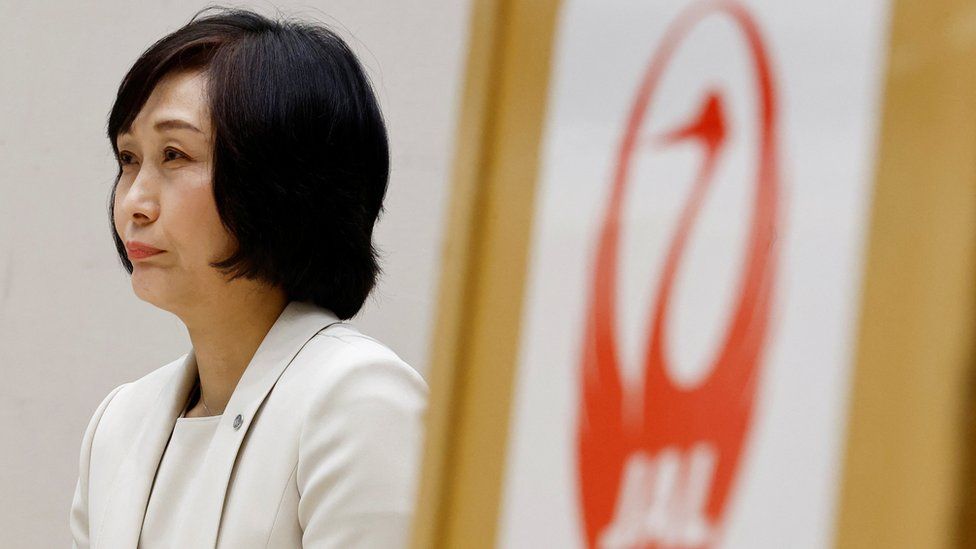 Reuters
ReutersJapan Airlines has named a woman as its next president for the first time, a rare appointment for a major Japanese firm – and global airline.
Mitsuko Tottori joined the flag carrier as a flight attendant in 1985, before working her way up.
She said she hoped her promotion would give other women the courage to pursue the next step in their careers.
Despite some improvements, very few major airlines have women in senior leadership positions.
Ms Tottori will replace Yuji Akasaka as president on 1 April. Mr Akasaka will replace Yoshiharu Ueki as chairman, the airline’s most senior position.
The appointments come weeks after a Japan Airlines plane crashed with a smaller coastguard aircraft at Tokyo’s Haneda Airport.
A “miraculous” evacuation ensured all 379 passengers and crew on board the jet survived, but five of the six crew on the coastguard plane died.
Ms Tottori – who worked in frontline roles before becoming a director for cabin crew in 2015 – said she would prioritise safety.
“I have spent most of my career at the frontline of safety and customer services – that is the cabinet attendants’ division,” she told a press conference.
“Operational safety is the foundation of airlines. I will continue to demonstrate my firm commitment to this principle,” she said.
She also said there were women struggling to progress in their career, and hoped her appointment “can encourage them, or give them the courage to take the next step”.
A survey by the aviation specialist website FlightGlobal found that, at the end of 2022 there were 12 women leading the top 100 airlines, up from six a year earlier.
They include Marjan Rintel at Dutch carrier KLM, Annette Mann at Austrian Airlines and Aer Lingus’s Lynne Embleton.
Earlier this month, Joanna Geraghty was appointed chief executive of JetBlue Airways, becoming the first female to head a major airline in the United States.
It is also rare for women to lead major companies in Japan.
The government wants a third of leadership positions at major businesses to go to women by 2030, after failing to achieve the goal by 2020.
It is also urging businesses to appoint at least one woman as an executive by 2025.
Women held 13.2% of management positions in Japan in 2021, the lowest among the members of the Organisation for Economic Co-operation and Development (OECD).
The trend suggested “a serious misallocation of human resources,” the OECD said.
Related Topics
-
-
29 September 2020
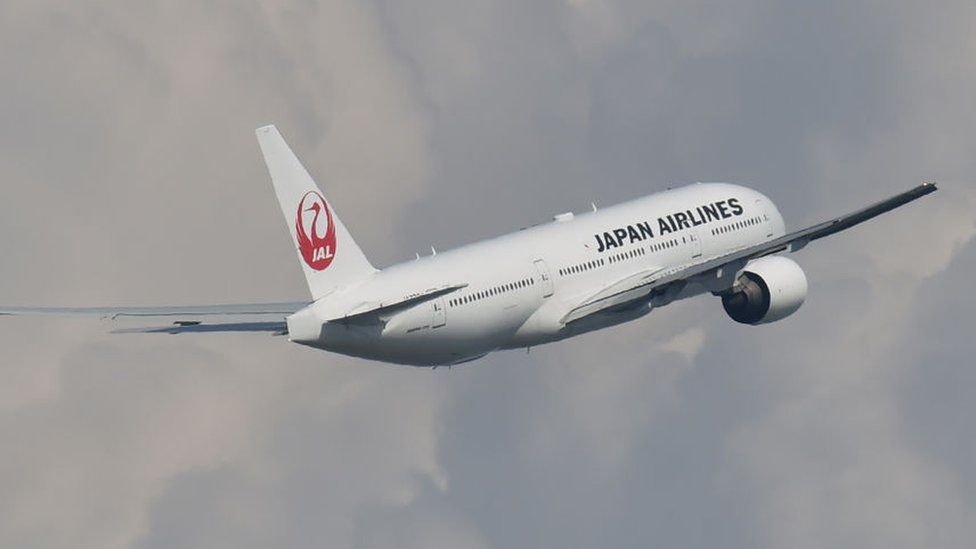
-
Thaksin issue âmay imperilâ justice system
Senator says too many questions reman unanswered about early-release rules

Allowing convicted former premier Thaksin Shinawatra to serve the rest of his jail term at his luxury home could imperil the justice system, says an outspoken senator.
Somchai Sawangkarn delivered the warning on Thursday in response to an announcement by the Department of Corrections on Wednesday that Thaksin could serve the rest of his sentence at home.
Thaksin, 74, qualifies as he is classified as a medium-grade prisoner who is over 70 years old and suffering from various illnesses, the department said in December when it announced a new regulation that some prisoners would be allowed serve the remainder of their sentences outside of prison.
Meanwhile, the director of Bangkok Remand Prison, where Thaksin was taken on Aug 22 last year, has not yet requested parole for the former PM, despite it being announced this week that he was now eligible.
Thaksin was admitted to the Police General Hospital hours after his arrival at the prison to serve an eight-year sentence — later reduced to one year under a royal pardon — for abuse of power and conflict of interest while in office prior to 2006.
He remains at the hospital with permission from the corrections department, despite having reached the maximum 120 days allowed for inpatient care on Dec 22.
The department said it moved Thaksin to the hospital because he needed ongoing treatment for many illnesses that also required close monitoring. It has refused to go into further detail, citing patient confidentiality.
Thaksin is known to have high blood pressure as well as heart and respiratory problems and other ailments associated with old age. He has had two surgical procedures for unspecified conditions since being admitted to the hospital.
Mr Somchai, who chairs the Senate committee on human rights, civil liberties and consumer protection, said the department’s mention of a “special suspended jail term” in the new regulation lacks details.
Such a suspended jail term, he said, must adhere to the Corrections Act, which explicitly states that any convict who qualifies for parole must have served time in jail for at least six months or one-third of their prison sentence first.
Thaksin’s health condition did not provide grounds for invoking the new regulation issued on Dec 6, he said.
The senator said efforts were being made to arrange for Thaksin to recover from his illnesses at home.
But it must be established that should home confinement be permitted, the home has to meet prison security requirements. As well, he said, authorities should clarify whether other inmates could seek the same privilege.
“It’s my understanding that after Thaksin admitted to the charges and had his sentence commuted thanks to the royal pardon, he would not request another sentence reduction and do the one-year jail time,” Mr Somchai said on Thursday.
“We must let justice take its course.”
If Thaksin is so seriously ill that he must be excused from prison to obtain treatment, society deserves to know his current state of health, the senator said.
“But there’s no clarity there, which leaves people wondering if Thaksin actually entered the justice process,” he added.
Mr Somchai warned the new regulation that could ease Thaksin’s path to early release could create a crisis of faith in the justice system.
“Do not try to twist justice,” he said.
He also expressed concern that some law enforcement officials connected to Thaksin’s imprisonment could end up behind bars instead of the former premier.
Chaichana Detdecha, a Democrat Party MP and member of the House committee on police affairs, said his panel was barred from visiting Thaksin on the 14th floor of the Police General Hospital last week. However, he was able to meet two other inmates receiving treatment on another floor of the same building.
“The general public can judge for themselves if double standards are at play,” he said.

